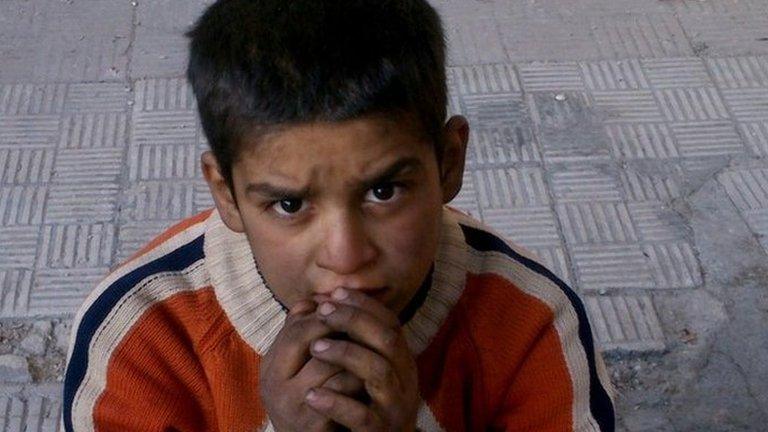UK to act with 'urgency' over Syrian refugees says PM
- Published
- comments
David Cameron and Ed Miliband on UK helping Syrian refugees
The UK will act "with the greatest urgency" in offering the "most needy people" in Syrian refugee camps a "home in our country", says David Cameron.
The prime minister told MPs he wanted to "particularly help those who have been victims of sexual violence".
Deputy PM Nick Clegg said on Tuesday torture victims, elderly and disabled people would also get priority.
The government expects the number of refugees accepted to be in the hundreds but has not set a specific target.
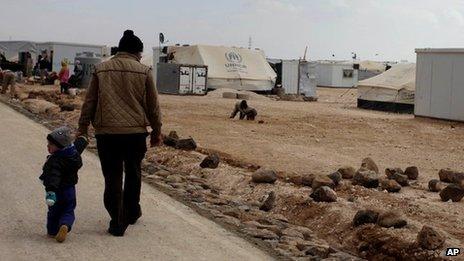
Germany is taking 11,000 refugees
The UK's resettlement programme is to be separate from the ongoing UN High Commissioner for Refugees scheme which has seen Germany commit to admitting more than 10,000 Syrian refugees and France take 500.
Home Secretary Theresa May told MPs the UK's goal was a political settlement that would "bring an end to the violence in Syria", allowing Syrians to "return to their homes and livelihoods in peace".
But the UK had agreed with the UNHCR office in London to set up a "vulnerable person relocation scheme", which will run in parallel to the agency's own refugee scheme, with the aim of resettling those at the "greatest risk" in the UK.
The programme will focus on individual cases "where evacuation from the region is the only option", said the home secretary, and will "prioritise help for survivors of torture and women and children in need of medical care", as recommended by the UNHCR. There would also be a focus on rescuing the victims of sexual violence, Mrs May told MPs.
"This is in the spirit of the UNHCR programme but it is not technically part of it," she added, saying it would provide "greater flexibility".
She said 3,500 Syrian refugee asylum seekers were already in the UK.
Ahead of that statement Labour leader Ed Miliband welcomed the move to take refugees and urged the PM to act with urgency.
Mr Cameron replied: "We will act with the greatest urgency because, when it comes to Syria, we have acted with the greatest urgency throughout.
"We have made available £600m, which makes us the second largest humanitarian donor, we provided food for 188,000 people, clean water for almost a million and medical consultations for almost a quarter of a million.
"We will be coming forward with a scheme to help the most needy people in those refugee camps and offer them a home in our country."
During exchanges in the Commons on Monday, the government faced criticism from MPs of all political parties for declining to participate in the UN-led scheme.
The deputy prime minister's announcement on Tuesday, and the PM's comments, pre-empted a Labour-led debate on the issue, where the government was facing the prospect of a Commons defeat over its refusal to sign up to the UNHCR initiative.
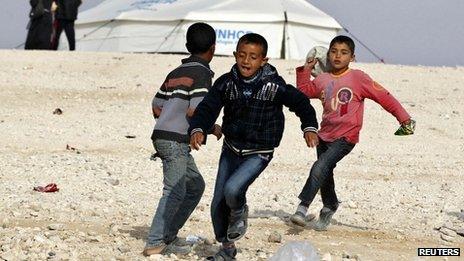
The UK says half of Syria's nine million population have been displaced
Mr Clegg said: "The coalition government wants to play our part in helping to alleviate the immense suffering in Syria. The £600m we have provided makes us the second largest bilateral donor of humanitarian aid in the world.
"But as the conflict continues to force millions of Syrians from their homes, we need to make sure we are doing everything we can.
"We are one of the most open-hearted countries in the world and I believe we have a moral responsibility to help.
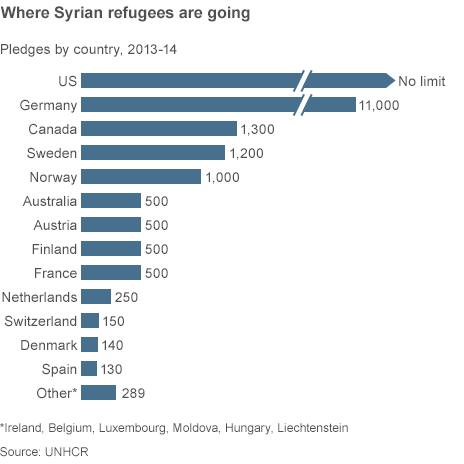
"The UN High Commission for Refugees - which backs our new resettlement programme - has said the highest priority should go to women and girls who have experienced or are at risk of sexual violence; the elderly; survivors of torture and individuals with disabilities, so that's who we'll target.
"Sadly we cannot provide safety for everyone who needs it, but we can reach out to some of those who need it most."
The BBC understands the refugees will be given temporary visas allowing them to stay for at least three years.
The visas will then be reviewed on a case-by-case basis taking into account personal circumstances and the situation in Syria.
The UNHC's representative in the UK, Roland Schilling, said the government move was "an encouraging and important step, reaffirming the UK's commitment and contribution to international relief efforts".
Shadow Home Secretary Yvette Cooper: ''It is a good thing that the government has completely reversed its position''
Shadow home secretary Yvette Cooper said the government's move was a "big reversal" but that "compassion and common sense have won through".
"Vulnerable Syrian refugees, torture victims, abandoned children and those struggling to cope or survive in the camps desperately need sanctuary and Britain has a moral obligation to help," she said.
But she said the UK should be working with the UN to decide on numbers rather than setting up a "parallel programme" of its own.
Refugees fleeing Syria
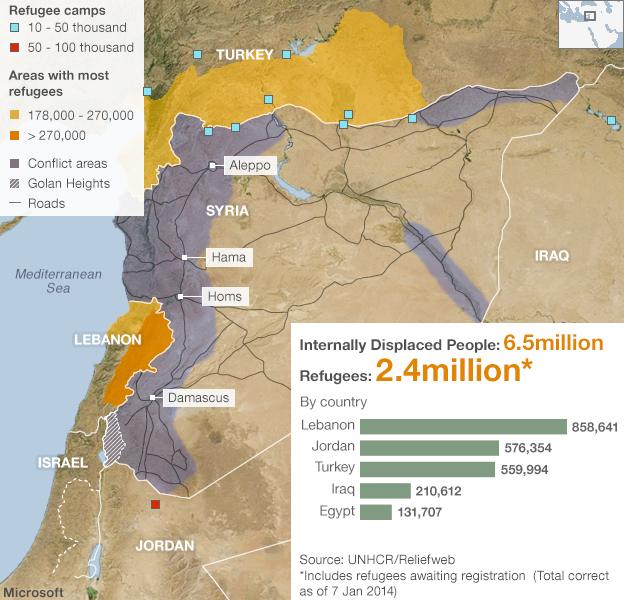
The move was welcomed by MPs from all sides of the Commons, former Lib Dem leader Sir Menzies Campbell saying it gave the UK flexibility to help those whose suffering had been the most "grievous".
But Conservative Brooks Newmark - an expert on Syria - said numbers should be limited and those countries not making such a big contribution to the aid effort should be taking in more refugees than the UK.
UKIP leader Nigel Farage also backed the move, saying a clear distinction must be made between genuine refugees from persecution and economic migrants.
The Refugee Council's Maurice Wren said the move had been a "long time coming" but the UK was standing up for an important principle.
And Amnesty International UK director Kate Allen said: "This move is long overdue but of course it's never too late to do the right thing."
- Published29 January 2014
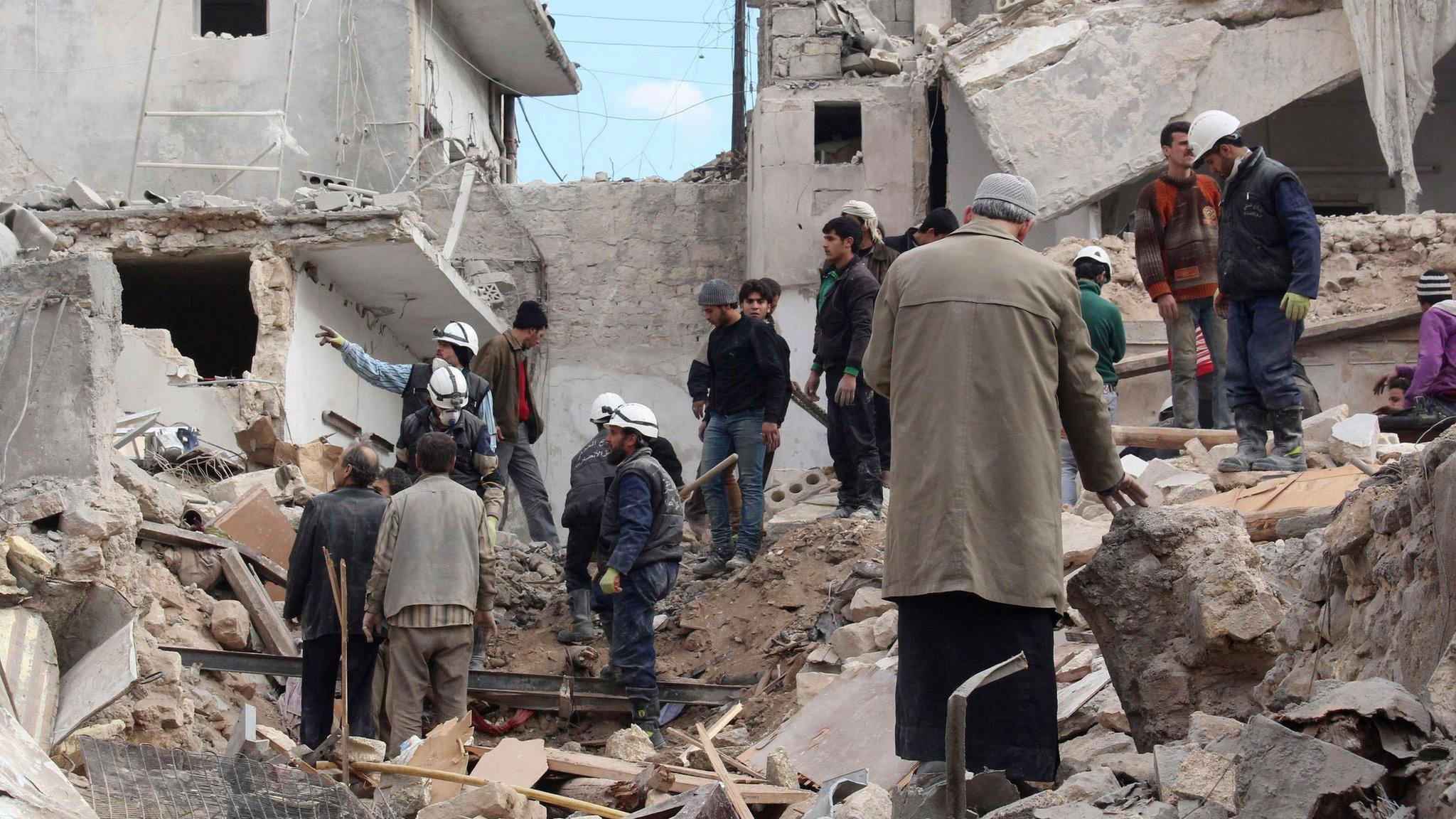
- Published27 January 2014
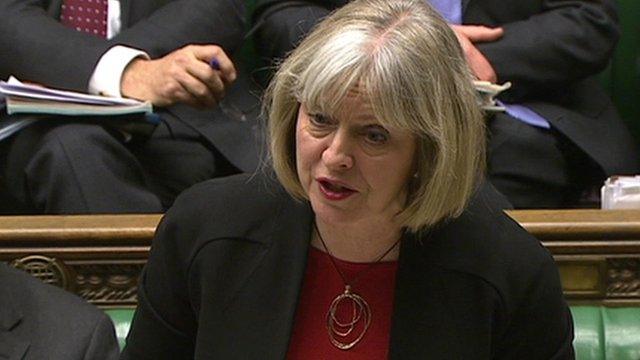
- Published26 January 2014
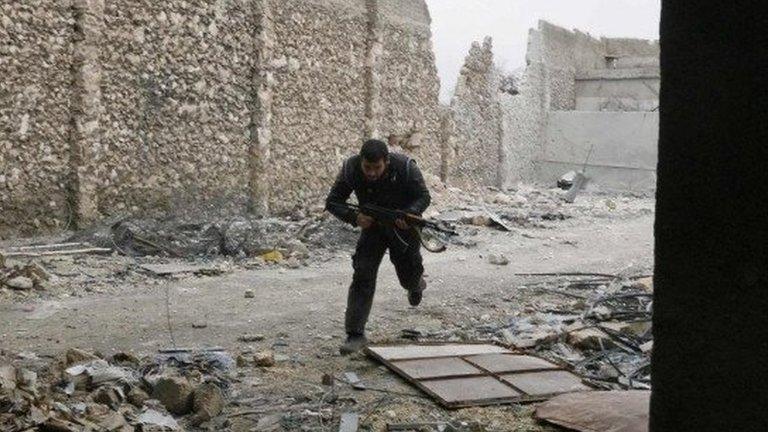
- Published22 January 2014
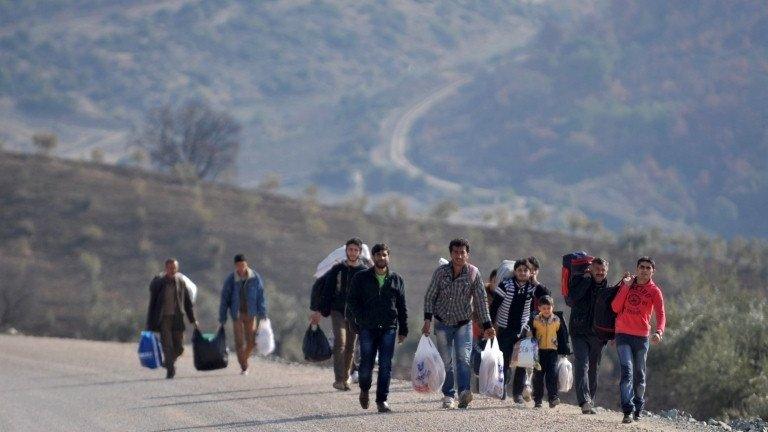
- Published20 January 2014
